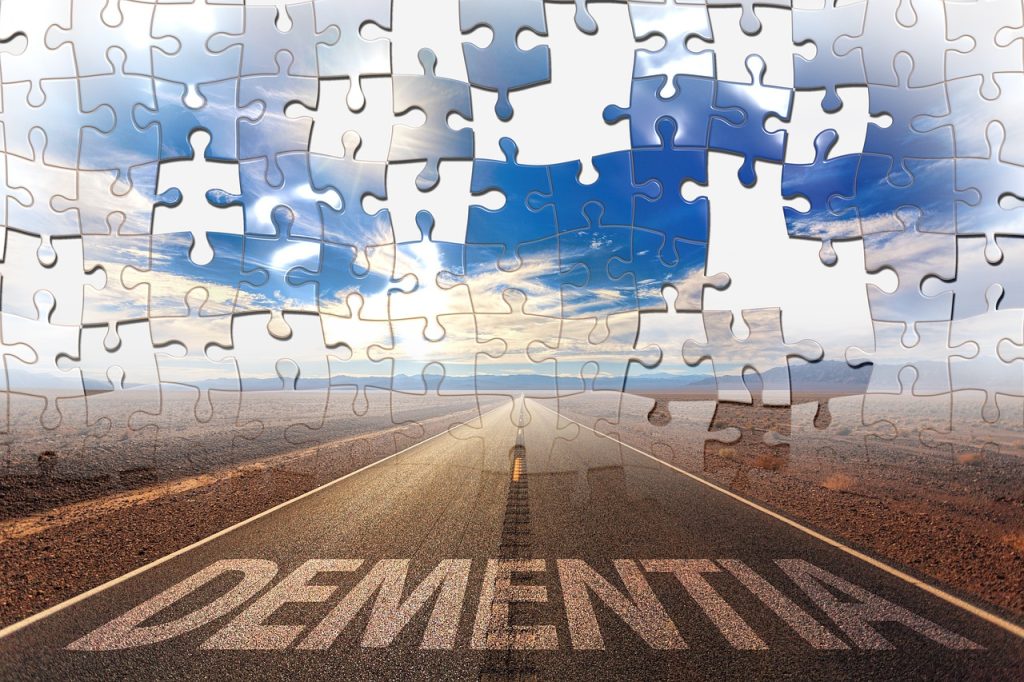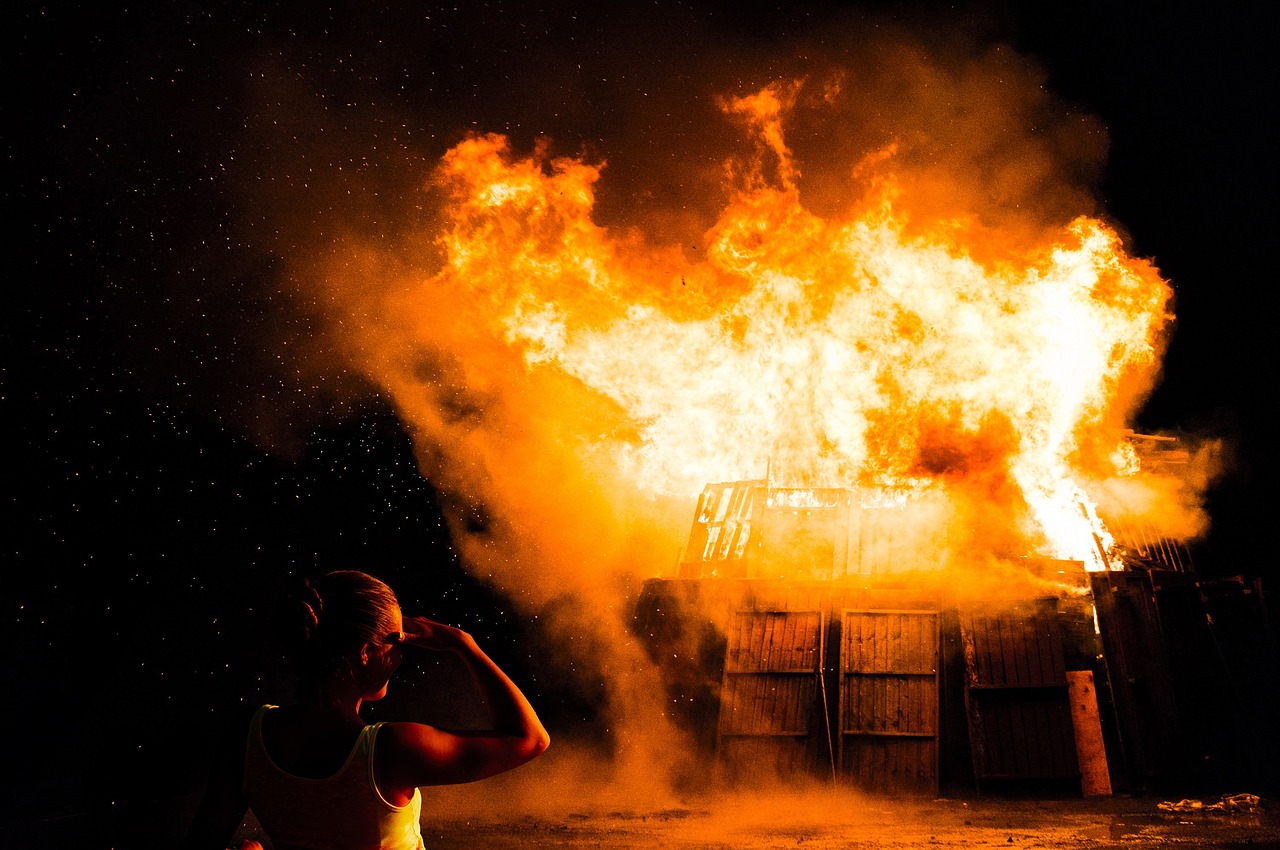Wildfires leave more than just scorched landscapes and lost homes—they create lasting psychological scars that can take years to heal. The trauma of evacuations, property loss, and uncertainty weighs heavily on survivors, first responders, and entire communities. Many experience anxiety, PTSD, depression, and cognitive impairments, making recovery even more challenging.
Early wildfire detection plays a crucial role in reducing both physical devastation and emotional distress. By detecting fires in their earliest stages, exci’s AI-powered wildfire detection system helps prevent disasters before they escalate, giving communities valuable time to act. This technology not only enhances emergency response but also helps mitigate the long-term mental health toll of wildfires.
In this post, we explore the mental health impact of wildfires and how AI-driven fire detection can contribute to faster response, lower risk, and greater resilience in fire-prone areas.
The Hidden Scars of Wildfires
Unraveling the Impact on Mental Health
Wildfires leave behind more than burned landscapes and ruined property—they leave lasting marks on the minds of those affected. Survivors endure a range of psychological struggles, from immediate anxiety to long-term trauma. Recognising these impacts is key to supporting wildfire survivors and building resilience in vulnerable communities.
Psychological Impact
Anxiety, Stress, and Eco-Anxiety
Wildfires speed and unpredictability create intense fear, especially during evacuations or when facing potential property loss. People often experience intense stress during wildfires, feeling vulnerable, losing sleep, and staying on high alert. The combined strain of being displaced, losing possessions, and worrying about loved ones can lead to panic, helplessness, and lingering unease.
Thick smoke from wildfires can worsen these feelings. Hazy skies reduce visibility, heightening anxiety and a sense of vulnerability. Psychologist Thomas Doherty notes that wildfire smoke often triggers anxiety and claustrophobia. During the Quebec wildfires in June 2023, smoke spread across the northeastern United States, causing unease even in distant areas. Such events also fuel “eco-anxiety,” a mental health issue linked to the awareness of climate change and its effects.
Research also points to long-term impacts. Traumatic wildfire experiences and exposure to fine smoke particles can lead to lasting brain changes and may impair cognitive performance.
Cognitive Impairments and “Fire Brain”
Wildfire smoke doesn’t just cause emotional stress; it can also impair cognitive function, a condition sometimes called “fire brain.” Research on California’s 2018 Camp Fire showed that survivors struggled with reduced concentration and increased distractibility for months after exposure.
This cognitive decline stems from neurotoxic particles in wildfire smoke—like fine particulate matter (PM2.5), polycyclic aromatic hydrocarbons (PAHs), and heavy metals—that enter the brain, triggering inflammation and oxidative stress. As a result, this neuroinflammation raises the risk of Alzheimer’s, dementia, and Parkinson’s and can harm areas involved in memory and learning.
 Image by Gerd Altmann from Pixabay
Image by Gerd Altmann from Pixabay
Furthermore, wildfire smoke exposure is linked to poorer academic performance in children and lower productivity in adults. One study even found a measurable drop in exam scores among students exposed to high levels of bushfire smoke, potentially affecting future educational and career paths. For adults, cognitive strain can reduce productivity and earnings, ultimately impacting quality of life.
In addition to cognitive challenges, the emotional scars left by wildfires can lead to post-traumatic stress disorder (PTSD), further complicating recovery for many survivors.
Post-Traumatic Stress Disorder (PTSD) in Survivors
For many wildfire survivors, trauma lingers well after the flames are gone. Experiencing or witnessing a wildfire often triggers post-traumatic stress disorder (PTSD). This condition shows up as flashbacks, intrusive memories, and overwhelming distress. Studies suggest that prolonged exposure to traumatic events—like frequent evacuation alerts or close encounters with fire—can make PTSD symptoms even worse.
As survivors struggle with these experiences, returning to normal routines can feel overwhelming. Mental health professionals note that wildfire exposure often leaves people in a “hyperaroused” state. This heightened stress response makes everyday functioning difficult. Research shows that PTSD rates among wildfire survivors can be three times higher than in the general population, highlighting the urgent need for accessible mental health resources in these communities.
Even when PTSD doesn’t develop, survivors often face grief and depression as they mourn their significant losses.
Depression and Grief: Coping with Loss
Wildfires cause deep heartbreak, taking away irreplaceable possessions, homes, and, tragically, sometimes lives. This profound loss can lead to depression, especially for those who have lost years of memories tied to their homes or belongings. Grief often goes beyond physical items, also impacting one’s sense of security and belonging. For some, this grief can turn into long-term depression, affecting their ability to feel hopeful or optimistic about the future.
The impact doesn’t stop with adults. Wildfires also deeply affect the youngest members of these communities, whose mental health may suffer in unique ways.

Depression Image by Daniel Reche from Pixabay
Wildfires’ Ripple Effects on Children’s Mental Health
Children are especially vulnerable to the mental health effects of wildfires. Although they may not fully understand the event, they can sense adults’ distress, which can heighten their fears. Research shows that children exposed to wildfires or evacuations often experience increased anxiety, withdrawal, nightmares, and behavioural changes.
Without support, these symptoms may linger, affecting their academic performance and social development. Early intervention and mental health care tailored to children are crucial to prevent these issues from impacting their futures. However, wildfires affect entire communities, often resulting in widespread social isolation.
Community Impact and Social Isolation
Wildfires often disrupt social networks, which are vital for coping with trauma. Displacement and the loss of familiar gathering spots—like schools, workplaces, and community centres—can create feelings of isolation. Many survivors feel “disconnected” or “lost” even after returning to rebuilt homes, as the altered community landscape intensifies their sense of displacement. This shared trauma can spread through communities, creating a collective grief that complicates recovery.
Moreover, the challenges of wildfires don’t stop with community members. First responders and firefighters are pushed to their limits during intense wildfire seasons, leading to higher rates of mental health challenges and burnout.
The Strain on First Responders and Firefighters
Firefighting crews face unique mental health challenges due to repeated exposure to high-stress environments. Studies show that these brave individuals are at higher risk for PTSD, anxiety, and depression, often worsened by physical exhaustion. Their work requires them to repeatedly face life-threatening situations and traumatic scenes, which takes a heavy psychological toll. For this reason, providing mental health resources is essential to support their resilience and ability to continue serving communities in need.
Recognising the broad mental health impact of wildfires—from first responders to community members—highlights the need for strategies that foster recovery and resilience for everyone affected.
How to Mitigate the Mental Health Impact of Wildfires
Building Resilience: Strategies for Support and Recovery
Supporting wildfire-affected communities requires a multi-layered approach. Effective mental health interventions include trauma counselling, community support groups, and educational programs that teach coping strategies. Several programs have made a positive impact:
Community Support Initiatives
- In Australia, organisations like Phoenix Australia and SANE provide peer support groups for bushfire survivors. These safe spaces allow individuals to share experiences and coping strategies, helping reduce isolation and rebuild community connections. Trauma-informed programs like these enable survivors to process their experiences together.
- In the United States, initiatives such as After The Fire or California Wildfire Recovery offer similar peer support groups. These programs allow survivors to connect and share, which has been essential in reducing feelings of isolation and fostering community bonds.
Trauma Counseling Programs
- In Australia, crisis counselling programs offer immediate support to individuals and families affected by disasters, including wildfires. The Australian Government’s Disaster Recovery Funding Arrangements (DRFA) provide mental health services to help people recover. Organisations such as Beyond Blue and Lifeline play essential roles during these times, offering mental health resources and counselling to address issues worsened by disasters.
- Similarly, the FEMA-funded Crisis Counselling Program offers immediate counseling services as well. These programs provide emotional support and resources to help individuals and families cope in the aftermath of wildfires.
Child and Youth-Focused Mental Health Resources
- Australia’s Child and Adolescent Mental Health Initiative supports children affected by bushfires through programs like RFW Bushfire Recovery Program, Safe the Children or Headspace. These programs offer counselling, educational resources, and activities that help children express their feelings and build resilience.
- In the U.S., similar programs are provided by the National Child Traumatic Stress Network, which helps children and families manage trauma from disasters with specialized resources and support.
Public Health Campaigns
- Campaigns like “Mental Health Matters” in Australia work to raise awareness about the mental health impacts of natural disasters. They encourage individuals to seek help without stigma and inform the public about available resources.
The U.S. runs similar initiatives, like the “Ready.gov” campaign, which prepares communities for various disasters, including mental health preparedness and recovery resources.

Mental Health Matters Photo by Matthew Ball on Unsplash
Wildfires leave scars that go far beyond the visible damage. By understanding and addressing the mental health impacts, we can better support those affected, helping them rebuild their homes and sense of peace. Resilience strengthens when communities unite, support each other, and acknowledge the hidden wounds left by natural disasters.
As communities heal, integrating innovative solutions is essential to enhance resilience against future wildfires. exci’s AI-powered wildfire detection system offers one solution, designed to aid these recovery efforts and reduce the devastating impact of wildfires.
exci: AI Early Wildfire Detection for Rapid Response
As wildfires become more frequent and intense due to climate change, firefighting resources are stretched thin. This raises the risk of new fires quickly escalating beyond control. Containment becomes incredibly challenging when fires grow into mega-fires, spanning hundreds or thousands of kilometres. Early detection is crucial—it enables swift containment and reduces wildfires’ long-term physical and mental health impacts.
At exci, we are dedicated to minimising wildfire risks and their severity through our advanced, AI wildfire detection system. Using deep learning algorithms, exci’s AI analyses camera and satellite imagery in real-time. The system monitors vast areas of plantations, forestry, and agricultural land for smoke and heat signatures. This rapid detection allows for prompt response and prevention.
By identifying fires at their earliest stages, exci’s fire detection technology helps communities avoid the devastating consequences of unchecked wildfires. Beyond aiding fire management, exci’s technology also supports public mental health by reducing stress and anxiety for those living in fire-prone areas.
exci’s wildfire detection system is part of a broader strategy to build long-term resilience in communities facing increasingly severe fires. As fire risks grow due to climate change, integrating exci’s AI-driven system is essential to adapt to these challenges. Together, we can create a safer, more resilient future.
Conclusion: A Call to Action for Community Resilience
Reflecting on the lasting impacts of wildfires, it’s clear that recovery goes beyond rebuilding physical structures. It also involves healing the emotional wounds of individuals and communities. The mental health challenges caused by wildfires demand urgent attention and collaboration. By fostering a culture of support and awareness, we can help survivors cope with grief, anxiety, and trauma.
exci’s AI wildfire detection technology plays a key role in reducing the severity of wildfires. It provides communities with an invaluable tool for prevention.
Together, we can create more resilient communities that are better prepared to face wildfire challenges. Let’s advocate for mental health resources, encourage community engagement, and use innovative technology to protect our futures. In unity, we can turn the scars of the past into a foundation for hope, resilience, and renewal.
by Gabrielle Tylor
exci – Smoke Alarm for the Bush
Early AI-Powered Bushfire & Wildfire Detection Technology
8 November 2024
Don’t let Hazardous Events become Catastrophic!
exci has evolved from delivering AI-powered wildfire detection to offering a complete fire detection and monitoring solution. By expanding our services, exci offers a One-Stop Solution for comprehensive wildfire/bushfire detection, management, and network connectivity. Proudly Australian-made and owned, we provide a complete package that includes:
- AI-driven detection system for fast, accurate and reliable early wildfire detection
- Real-time camera access and control allow immediate situational awareness and informed decision-making during wildfire events.
- Expertly designed and installed hardware for seamless fire monitoring
- Custom tower solutions tailored to your specific location and needs
- Complete expert installation and maintenance services
Secure your assets, enhance your fire response capabilities, and experience peace of mind with exci’s innovative AI forest fire detection and monitoring service.
Contact us today to discover how we can tailor our AI wildfire/bushfire detection and network solutions to suit your unique needs.
Email: info@exci.ai
International: +61 458 594 554
Australia: 1300 903 940

